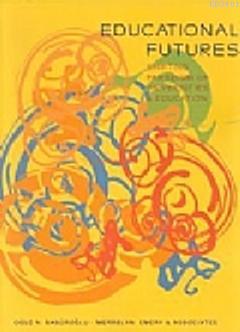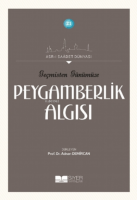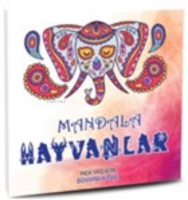9789758362089
145591

https://www.turkishbooks.com/books/educational-futures-egitimdeki-gelecek-p145591.html
Educational Futures (Eğitimdeki Gelecek) Shifting Paradigm of Universities and Education
6.666
Educational Futures: Shifting Paradigm of Universities and Education posits educational futures as a choice of futures as well as the futures we are in. The contributors help us to recognize a shifting paradigm, and they urge us to make choices: to direct and shape a future in which we are already participating but have not yet made a comprehensive and explicit attempt to change, as well as to direct and shape the process of education to acknowledge the new paradigm.
One Major direction of the paradigm shift identified by the authors is toward developing a boundaryless learning community. This entails analyzing and overcoming the limitations of some well-known boundaries of the currently existing paradigm: the current tendency to focus on education and educational institutions rather than on learning and learning communities; the focus on a discipline-oriented education rather than on an inter-and transdisciplinary one, and on the limited modalities of when and where education should be given and recived-in particular, the tendency to see learning as taking place only within the context of schools and classrooms, rather than as a lifetime process which extends to work, home, and community settings.
The second major direction toward a new paradigm appears in the tendency toward the primacy of practice that refers to both a methodology of action and a new way of looking at theory. Dialogue with and between students, managers, policy makers, and members of communities, and collaborative work by academics and researchers with the aforementioned parties are encouraged in order to produce new knowledge that is based on relevance, that is grounded in real-life problems, and that can only be produced effectively through reflection in the course of action. A new approach to research based on "action research," and a new approach to understanding and meaning, through the promotion of theories which produce useful and relevant action knowledge to improve current situations, are emerging as the second core constituent of the new paradigm.
Educational Futures: Shifting Paradigm of Universities and Education posits educational futures as a choice of futures as well as the futures we are in. The contributors help us to recognize a shifting paradigm, and they urge us to make choices: to direct and shape a future in which we are already participating but have not yet made a comprehensive and explicit attempt to change, as well as to direct and shape the process of education to acknowledge the new paradigm.
One Major direction of the paradigm shift identified by the authors is toward developing a boundaryless learning community. This entails analyzing and overcoming the limitations of some well-known boundaries of the currently existing paradigm: the current tendency to focus on education and educational institutions rather than on learning and learning communities; the focus on a discipline-oriented education rather than on an inter-and transdisciplinary one, and on the limited modalities of when and where education should be given and recived-in particular, the tendency to see learning as taking place only within the context of schools and classrooms, rather than as a lifetime process which extends to work, home, and community settings.
The second major direction toward a new paradigm appears in the tendency toward the primacy of practice that refers to both a methodology of action and a new way of looking at theory. Dialogue with and between students, managers, policy makers, and members of communities, and collaborative work by academics and researchers with the aforementioned parties are encouraged in order to produce new knowledge that is based on relevance, that is grounded in real-life problems, and that can only be produced effectively through reflection in the course of action. A new approach to research based on "action research," and a new approach to understanding and meaning, through the promotion of theories which produce useful and relevant action knowledge to improve current situations, are emerging as the second core constituent of the new paradigm.
Yorumlar (0)
Yorum yaz
Bu kitabı henüz kimse eleştirmemiş.




















